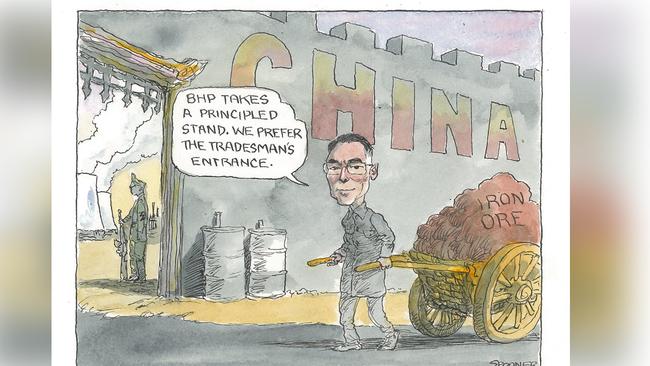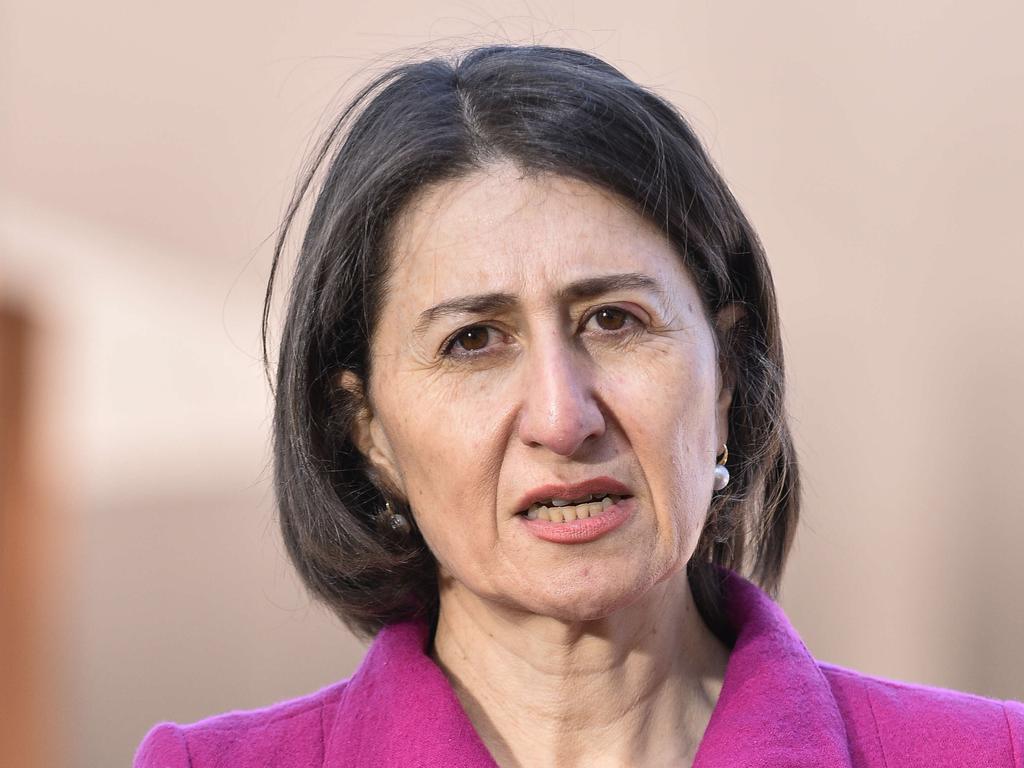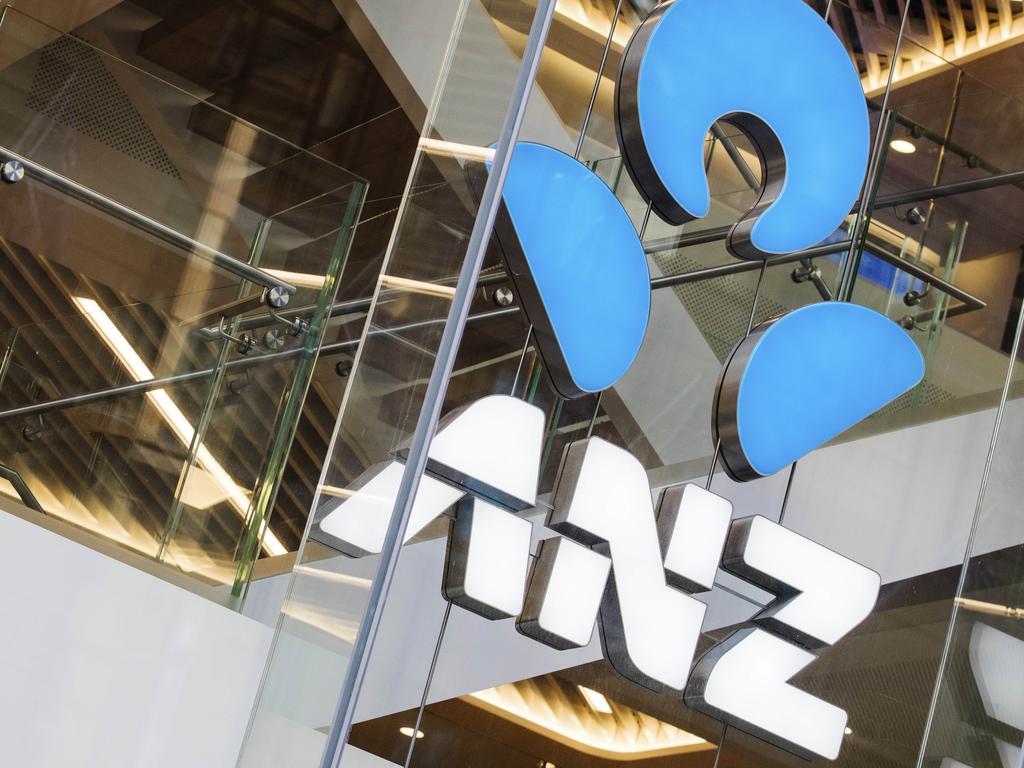Time to get serious about cyber crime
Telstra alone had some 1.4 million scam calls and 23 million dodgy emails in the first quarter of this year.

Last year the Australian Cyber Security Centre received reports of 26,500 cyber breaches at a direct cost of $29bn which highlights the need for the overhaul recommended by Telstra’s Andy Penn’s taskforce.
Fighting cyber crime is a little like motherhood. Everyone knows it’s good but in this case the villains range from nation states down and defence needs change by the day.
Ninety-nine per cent of cyber crime requires human error to succeed, so no matter how many high-powered committees you have the defence effort depends on the worker down the end of the chain.
Telstra alone had some 1.4 million scam calls and 23 million dodgy emails in the first quarter of this year.
This is why education and constant co-ordination between government, universities and industry is necessary.
The Penn committee highlighted five strings — deterrence, prevention, detection, resilience and investment.
Prime Minister Scott Morrison came to the party last month by firstly talking up the problems and importantly devoting $748m to help combat the crime.
The taskforce wants more digital infrastructure declared critical, including data centres. There are simple protections like password mechanisms (multi-factor authentication), more use of software to provide better data encryption and better knowledge about where company data is used and stored.
Governance of the government-run Cyber Security Centres is also needed, according to the task force.
In all, the best defence is awareness, which is why Penn’s taskforce is hoping to create a national conversation about the problems.
Iron-plated profits
BHP’s production report highlights what a fabulous commodity iron ore has proved in Australia’s hours of need: back in the middle of the GFC in 2008-9 and now mid-COVID.
With iron ore selling at $US109 a tonne and Australian miners’ costs including royalties around $US35 a tonne, that is a handy $US74 a tonne pre-tax margin.
The WA government collects around $US5bn in royalties and the feds their share in company taxes, with BHP claiming to pay $US7.1bn in Australian taxes, royalties and other government charges.
BHP figures Chinese steel production is back above 90 per cent capacity and outside it’s more like 55 per cent, but there are no signs of China’s demand falling any time soon.
Brazilian giant Vale is guiding to the lower end of its production range, so the Australian miners are making out like bandits.
Vale, it should be noted, looks to have passed the worst of its problems and the Chinese mills have used much of their allotted stimulus payments.
In time iron ore will revert to a more normal range of $US60 to $US80 a tonne but right now the tax receipts from BHP, Rio and Fortescue et al are helping to keep the country afloat.
In Chile they test each worker for COVID-19 before they go on site. In Australia temperature checks are taken and in the camps the kitchen-served food has changed to pre-ordered meals to minimise contact, with all mine meetings held externally.
BHP like Rio has managed COVID well and with Fortescue to report next week we can expect more good iron ore news, in part because the June quarter is seasonally strong.
Downer gets Spotless
Three years ago Downer’s Grant Fenn bid $1.3bn for Spotless but was foiled by New York hedge fund Coltrane in his bid and ended up with 87.8 per cent of the company.
On Tuesday Fenn revealed he has finally reached a deal with Coltrane to buy its just under 3 per cent stake in Spotless, which means he will own over 90 per cent and can compulsorily buy the rest.
This will provide the company with around $15m in synergy benefits.
The Spotless mop-up is part of the expenses to be paid from the $400m being raised in an entitlements offer at $3.75 a share.
Ownership Matters figures now put the COVID-19 capital raisings at $27.6bn, netting investment banks led by Macquarie $450m.
Downer is tipping a loss for the 2020 year of $155m.
The $225m sale of the Spotless laundry division was put on hold, along with the $400m mining division sale which was delayed in March.
The Spotless hospitality division, which accounts for 20 per cent of its earnings, is obviously a basket case due to event closures and requiring a $165m writedown.
The division is now being reviewed for potential sale as part of what Fenn calls creating a stronger Downer, built around an urban services strategy.
The facilities management business for the Department of Defence among other government departments is OK.
Still, when the book is written, Spotless won’t rank as Fenn’s finest hour.
Setting the standard
The key to Environment Minister Sussan Ley’s reforms will be the standards set by the feds, which will be administered by the states.
Graeme Samuel will convene a meeting of interested parties next week to start the process of working out just what will be included.
Given the states are then responsible for administering the rules, these clearly set the standards to be applied.
Samuel’s desire to rid the country of unnecessary duplication is laudable but getting there is not as easy it sounds.
An alternative approach would be to set certain fields to be federal responsibilities with the states picking up the rest.
These could include say water, the Barrier Reef, indigenous sites and National Parks.
Which parts of the country are subject to federal control would clearly be subject to some debate.
The Samuel model says the feds set the rules and the states apply them, subject to an independent arbiter who could be simply the head of the federal Department of Environment.
The idea is to keep clear of political influence.
But if, say, NSW kept on breaching the standards then the feds could move in and withdraw the NSW mandate, or if Queensland gave the green light for a uranium mine in the Barrier Reef, the feds could also intervene.
The point being the states are not entirely free of control.
There is also a need to keep better registers of species and areas of historical significance like the Juukan Gorge that Rio blew up.
Minister Ley’s desire to get the framework in place is welcome but there is plenty of work left to do before the reform is workable.
Step one is clearly ensuring the federal standards are the right ones.








To join the conversation, please log in. Don't have an account? Register
Join the conversation, you are commenting as Logout